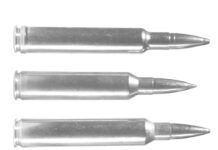The Fourth Circuit Court has upheld Maryland’s Handgun Qualification License (HQL) law, which requires citizens to obtain a permit to purchase a firearm. In a 14-2 decision, the court in Maryland Shall Issue v. Wes Moore rejected a Second Amendment challenge to a state law requiring a Handgun Qualification License to purchase a handgun. Applicants for the license are required to submit fingerprints, undergo a background check and complete a training course. Certain residents, including current or retired law enforcement officers in good standing and current or retired members of the United States military, are exempt.
“We believe that holding is contrary to controlling Supreme Court precedent and is plainly wrong as a matter of law,” gun rights organization and plaintiff Maryland Shall Issue wrote in a social media post.
Along with 13 other judges, Senior U.S. Circuit Judge Barbara Keenan found that Maryland’s Firearm Safety Act of 2013 doesn’t violate the U.S. Constitution.
Instead, Keenan said the law — which requires gun owners to obtain a handgun qualification license or HQL — simply ensures that people seeking to exercise their Second Amendment rights are law-abiding.
“This is a great day for Maryland and for common-sense gun safety,” Maryland Attorney General Anthony Brown wrote in a statement. “We must ensure guns stay out of the hands of those who are not allowed, under our laws, to carry them.”
The Bruen decision, authored by Justice Clarence Thomas in 2022, established that any law restricting gun ownership must align with the nation’s historical tradition of firearm regulations.
The ruling struck down “may-issue” laws, which required individuals to prove a specific need to carry a handgun in public. However, Maryland’s HQL law takes this a step further by requiring law-abiding citizens to jump through numerous bureaucratic hoops—four hours of training, live-fire testing, fingerprinting, and a waiting period—just to purchase a handgun. Also, this law tracks every gun owner and their firearms through state control.
The Fourth Circuit’s ruling allows states to require permits simply to purchase a firearm, opening the door for widespread gun registries.
“The Fourth Circuit is clearly disregarding the Bruen decision and the Second Amendment,” said Texas Gun Rights President Chris McNutt. “This permit-to-purchase law serves as nothing more than a state-controlled gun registry, and it’s an affront to the freedoms our Founding Fathers intended for us.”
Much of the opinion centered on the Supreme Court’s landmark 2022 ruling in New York State Rifle and Pistol Association v. Bruen. In that case, the high court said it was unconstitutional for New York to require that citizens demonstrate a particular need for self-defense before obtaining a license to publicly carry a firearm.
Maryland’s HQL is defined as a shall-issue law rather than a may-issue law. In shall-issue legislation, the state has no discretion in who is awarded a qualification, as there are set criteria applicants must meet.
Because of this distinction, the Fourth Circuit majority found that a Bruen test centered on the Second Amendment’s text and history was unnecessary. Instead, they pointed to a footnote in Bruen, which specifically referenced shall-issue laws and said they do not “necessarily prevent ‘law-abiding, responsible citizens’ from exercising their Second Amendment right to public carry.”
U.S. Circuit Judges Julius Richardson and Marvin Quattlebaum dissented, arguing in their own opinion that all Second Amendment challenges must be tested under Bruen.
“Our en banc Court carries Maryland’s defense across the finish line,” Richardson wrote. “To do so, the majority stretches implications from Supreme Court dicta to establish a carveout from Supreme Court doctrine. It then defends this result by grounding it in a contrived reading of the Second Amendment’s plain text.”
In November 2023, a three-judge panel of the Fourth Circuit held the HQL requirement unconstitutional. But the court then vacated that opinion and agreed to rehear the case en banc.



























only to create a list of whos who so they can come and take your protection.
We have a plague of corrupt, incompetent and/or political federal judges. There needs to be a constitutional amendment to provide more practical method of removing them. The political process of impeachment is not maintaining an acceptable level of honor, competence and fealty to the Constitution in the judicial system — it’s all become a farce.
This decision flies in the face of the Constitution and the Supreme Court’s interpretation of the 2nd Amendment. There was never any intention by those who wrote it of forcing people to jump through all these hoops to exercise a constitutionally protected right, and no past history of it as required by the Bruen decision. The present Supreme Court will likely reverse it, but it should never have gone past a district court with competent judges to nullify the Maryland law, and a competent appeals court that would refuse to hear the appeal of a proper decision.